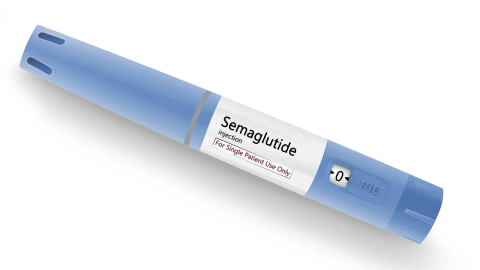Semaglutide Shows Promise in Reversing Advanced Liver Disease: NEJM Published Research
A groundbreaking international clinical trial has found that semaglutide—a medication widely used in managing type 2 diabetes and obesity—may also play a critical role in reversing liver damage in patients with metabolic dysfunction-associated steatohepatitis (MASH). Conducted across 37 countries and published in The New England Journal of Medicine, the trial demonstrated that semaglutide not only reduced inflammation and fat accumulation in the liver but also led to measurable improvements in fibrosis. These findings offer new therapeutic hope for patients suffering from MASH, a life-threatening liver condition closely associated with metabolic disorders such as obesity and type 2 diabetes.
Semaglutide Demonstrates Dual Benefits: Weight Loss and Liver Disease Reversal
Researchers initiated this study to evaluate whether semaglutide, known for its metabolic benefits, could also arrest or reverse progression in patients with MASH. This severe form of liver disease, previously classified under non-alcoholic fatty liver disease (NAFLD), is now recognized as metabolic dysfunction-associated steatohepatitis.
The trial found that 62.9% of participants receiving semaglutide had significant resolution of liver inflammation compared to 34.3% in the placebo group. Additionally, 10.5% average weight loss was observed in the semaglutide group, reinforcing its known benefits in addressing obesity-related pathologies.
A Focus on MASH: The Most Advanced Form of MASLD
MASH is the progressive and more dangerous form of Metabolic dysfunction-associated steatotic liver disease (MASLD), a chronic liver condition marked by fat deposition in hepatic tissues.
Its etiology is strongly correlated with obesity, type 2 diabetes, and cardiovascular conditions, making it a silent but growing global health crisis. Unlike earlier stages of liver fat accumulation, MASH can lead to irreversible fibrosis, cirrhosis, or even hepatocellular carcinoma if untreated.
Study Design and Scope: A Global, Randomized Trial
The trial enrolled 800 individuals from 37 countries, all of whom were randomized to receive either 2.4 mg of semaglutide via weekly injection or a placebo. All participants received lifestyle and dietary counselling throughout the 72-week trial period.
The randomized, placebo-controlled design ensured robust data on semaglutide’s efficacy against placebo, making it one of the most comprehensive trials conducted on this liver condition. The results now form a compelling case for re-evaluating treatment protocols for patients diagnosed with MASH.
Improvements in Liver Inflammation and Fibrosis Metrics
Beyond the reduction in liver inflammation, semaglutide demonstrated a tangible effect on fibrotic tissue.
Approximately 37% of patients in the semaglutide group exhibited improvements in liver fibrosis, compared to just 22.4% in the placebo cohort. Fibrosis is considered a key predictor of mortality in patients with liver disease, and even modest reductions can have long-term survival benefits.
Moreover, semaglutide-treated patients showed enhancements in biomarkers such as liver enzymes and other circulating indicators of hepatic health.
Potential Risks: Gastrointestinal Side Effects Noted
While semaglutide’s efficacy is evident, the study did highlight a higher incidence of gastrointestinal side effects among those receiving the drug.
Participants reported nausea, diarrhoea, constipation, and vomiting with greater frequency compared to the placebo group. Although these symptoms were generally manageable and aligned with known side effects of semaglutide, they underscore the importance of careful patient monitoring during treatment initiation and dose escalation.
Expert Perspectives: Cautious Optimism with Strong Clinical Implications
Professor Philip Newsome, a liver specialist at King’s College London and one of the lead researchers, commented on the study’s significance:
“While these results must be interpreted with caution, the findings suggest semaglutide could be a powerful new tool in the fight against MASH, a condition currently lacking approved pharmacological therapies,” he said.
This aligns with broader sentiments in hepatology, where clinicians have long sought treatments that go beyond lifestyle intervention and directly address the underlying metabolic and inflammatory pathways of liver diseases.
Conclusion: A Paradigm Shift in Liver Disease Management?
The compelling results from this global trial position semaglutide as more than just a weight loss or diabetes drug. Its potential role in treating MASH may signify a turning point in managing advanced metabolic liver diseases, particularly those linked to obesity and insulin resistance.
However, clinicians and researchers caution that while semaglutide shows promise, further long-term studies are needed to assess sustained benefits, potential liver regeneration, and impacts on mortality rates.
For now, the trial offers a beacon of hope for millions battling chronic liver disease — and potentially reshapes the standard of care in hepatology.
